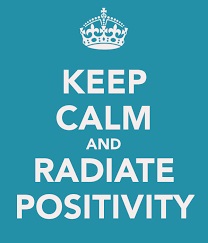Positive organizations perform better
Written by Anthony Demangone
You have a plan. It may be the perfect strategy. But have you worked on your people?
Now, I don't mean having the "right" people. Let's assume you have the right people, and the right plan. Are your people in the right frame of mind?
It could be more important than you think.
A study (not free) strongly suggests that organizations and teams that are positive outperform others. A Harvard Business Review article digs into the study.  (Free!) I'll leave you to read the HBR article. Here are some highlights.
Being positive has three main benefits to an organization, the study suggests. Being positive...
- Increases positive emotions, which triggers a large number of other related benefits, including the ability to problem-solve.
- Protects against inevitable negative events. Problems will always pop up. Positive employees bounce back faster.Â
- Attracts and keeps employees.Â
The HBR article talks about ways organizations can increase positive thinking, such as daily journals, asking people to praise teammates when good things happen, and meditating. One organization that focused on this saw positive changes within 30 days.Â
So it got me thinking. If an organization can focus on being positive, why stop there?
Some of you have heard me talk about the late great Coach John Wooden's pyramid of success. The pyramid comprises characteristics that Coach Wooden thought would lead to success. Those attributes?Â
Competitive greatness.
Poise.
Confidence.
Condition.
Skill.
Team spirit.
Self-control.
Alertness.
Initiative.
Intentness.
Industriousness.
Friendship.
Loyalty.
Cooperation.
Enthusiasm.
Coach Wooden thought that if you had teams with these characteristics, you would succeed. It's hard to argue against that logic.Â
So, here are the questions for you today.
- How would you rate your credit union on being positive? On the traits found in Coach's pyramid?
- Which are most important your credit union's success?
- If you found weaknesses, how could you improve? What could you stop doing? What should you start doing? For example, if it is important to have a positive and enthusiastic staff, do your job ads match up?
Have a great Thursday, everyone.
Â

